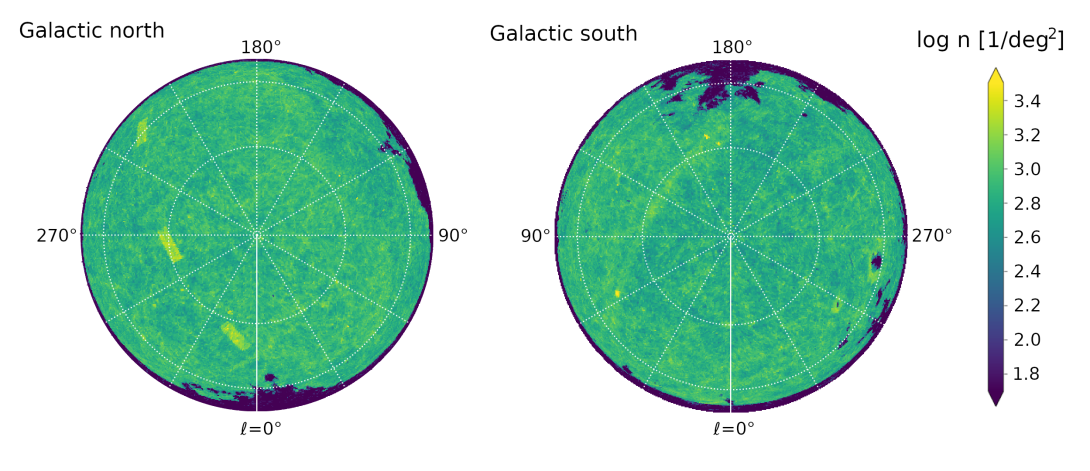Science cluster

Summary
UpGLADE is building the largest open-access, community-driven galaxy catalogue to advance gravitational-wave cosmology and address the Hubble tension - the discrepancy in measurements of the universe’s expansion rate. By linking gravitational-wave (GW) events with their possible host galaxies, the project will enable more precise cosmological measurements of the Hubble constant using GW standard sirens, and foster worldwide collaboration in multi-messenger astronomy. The project will also deliver an upgraded GLADEnet platform that allows astronomers worldwide to contribute their observations, creating a living, evolving scientific infrastructure that bridges GW observations with galaxy data.
In-kind contributors: University of Perugia, University of Warwick, University of Glasgow
Challenge
The Hubble constant H0 quantifies the universe's expansion rate and represents a fundamental cosmological parameter. A major challenge in modern cosmology is the Hubble tension, the disagreement between measurements of the Hubble constant obtained through different methods. Gravitational waves from compact binary mergers - “standard sirens” - offer a promising third, model-independent method to measure H0 without relying on a cosmic distance ladder. When combined with redshift information from host galaxies, these measurements can help determine which H0 value is correct. However, insufficient completeness, depth, and accessibility of galaxy catalogues prevent the accurate association of gravitational-wave events with their host galaxies, while the lack of interoperable, open tools limits community efforts to improve these datasets.
Solution
UpGLADE will release the UpGLADE Galaxy Catalogue and supporting infrastructure, the most complete open-access all-sky galaxy database to date. This includes deploying a modern, queryable database with high-throughput capabilities and API access, and integrating it with existing tools and Virtual Observatory standards for maximum interoperability. The database will also support advanced data types, such as probabilistic redshift distributions for AI-ready applications.
Moreover, the project aims to upgrade GLADEnet into an interactive community-driven platform for collaborative data curation. The infrastructure will provide:
- High-performance query access, integration with the UpGLADE catalogue;
- A secure, version-controlled data submission system for community contributions;
- Automated validation checks and expert review processes for quality assurance.
Scientific Impact
By creating a FAIR-compliant, community-driven data ecosystem interoperable with EOSC, UpGLADE sets a new benchmark for open, collaborative, and AI-ready scientific infrastructures. By providing the most complete and accessible all-sky galaxy catalogue, it will enable the most accurate dark siren measurement of the Hubble constant to date, advancing GW Cosmology.
The project will strengthen multi-messenger astronomy, supporting applications beyond cosmology.
For the first time, astronomers from large facilities to small observatories, as well as citizen scientists, will be able to actively improve catalogue coverage and data quality, creating a living, evolving resource that grows with community engagement.
By adopting Virtual Observatory standards and EOSC-compatible protocols, UpGLADE will seamlessly integrate data from major facilities such as SKA, CTA, Euclid, and the future Einstein Telescope. Its innovative components - including AI-ready probabilistic data models, community-powered curation workflows, and a federated architecture - will serve as a model for next-generation scientific infrastructures.
Principal investigator

Gergely is a CNES research fellow at L2IT. He obtained his PhD from Eötvös University, Hungary, in 2022, and then worked as a postdoctoral researcher at Ghent University, Belgium. He is the main developer of the GLADE galaxy catalogues, which serve as a cornerstone in the electromagnetic follow-up of gravitational waves. He now works on gravitational-wave cosmology and leads the Galaxy Catalogues and Electromagnetic Synergies subgroup within the LIGO–Virgo–KAGRA Collaboration.

